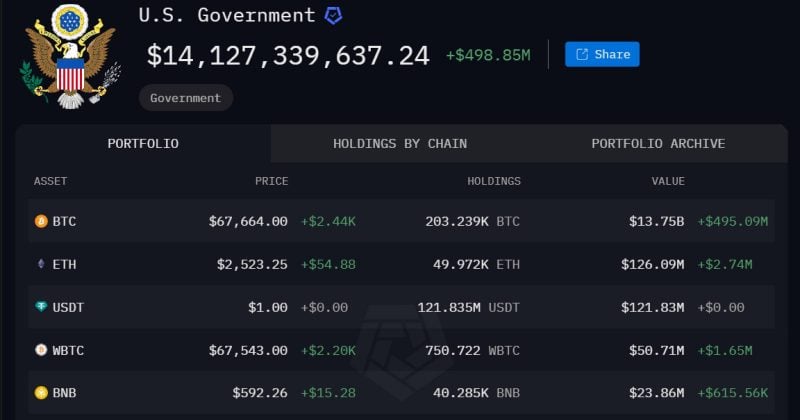Brenda Edwards has said she believes racism from online trolls will 'never go away' as she discussed the 'hateful' comments received since joining Loose Women.
The broadcaster, 55, said last year's first ever all-black panel - in honour of her late son Jamal Edwards - saw one vile troll say: 'How come we've gone back to Africa.'
She was joined on the special by Charlene White, Judi Love, Kéllé Bryan, and hit back at the time on social media after one viewer branded the episode 'anti-white'.
Now Brenda, who joined the ITV show in 2019, has revealed to MailOnline: 'It's really quite hateful, considering that Loose Women has been going for 25 years and for the majority of that it's been an all-white panel, so I don't get it.
'Yes it does happen, but it wont change, there will always be a minority of people that are against black people, I don't know why, I don't get it, I wasn't raised like that.'
Brenda Edwards, 55, has told MailOnline that she she believes racism from online trolls will 'never go away' and detailed 'hateful' comments she's received since joining Loose Women
The broadcaster said last year's first ever all-black panel (pictured) in honour of her late son Jamal Edwards , saw one vile troll say: 'How come we've gone back to Africa'
Speaking as part of the new GenesisCare Second Chance campaign, Brenda said she was even more convinced the online racists were in the minority after the panellists received 'amazing feedback' from audiences during the Loose Women tour earlier this year.
'People said "You speaking about that, that really helped me" and just one person saying they feel helped by this platform means the world to me.'
When the special aired, one viewer wrote on X: 'Brenda's son died a year ago, sad.
'But why does that mean they all have to be black? Because that's what she preferred? Seems anti-white'.
Brenda was quick to reply, writing: 'Wow seems you're actually the anti one. Why is it always such a big deal when we are on?
'We're just 4 beautiful, talented, strong women just like the panel that was on the day before, I really think you need to check yourself. I will pray for you.'
Talented music producer Jamal, who helped launch the careers of Rita Ora and Ed Sheeran, passed away after suffering a heart attack as a result of taking recreational drugs in 2022.
Elsewhere in the interview, Brenda said how she and fellow Loose Women ladies lean on each other after so many of them have been effected by cancer.
She was diagnosed with the breast cancer in 2015, while Coleen Nolan recently revealed she checks herself for signs of the disease everyday after the tragic effect it has had on her family.
Brenda, who joined the ITV show in 2019, told MailOnline: 'It's really quite hateful, considering that loose women has been going for 25 years and for the majority of that it's been an all white panel, so i don't get it'
'Yes it does happen, but it wont change, there will always be a minority of people that are against black people, I don't know why, I don't get it, I wasn't raised like that' (pictured on the special with L-R Charlene White, Judi Love and Kelle Bryan'
When the special aired last year Brenda was quick to hit back
Talented music producer Jamal, who helped launch the careers of Rita Ora and Ed Sheeran, passed away after suffering a heart attack (pictured in 2016)
She told MailOnline: 'So many people have been affected on the Loose Women panel, including Carol McGiffin, myself, and Coleen at the moment.'
Ex panellist Carol, 64, was diagnosed with breast cancer in 2014 and had a mastectomy that year.
Brenda said: 'It's very important to keep talking, no matter how small you think something is, go check it out with your doctor.'
When asked how the women go about supporting each other, she said: 'I'm friends with them, it's not just on the panel, we are friends outside the show.
'There's a Loose Women Whatsapp group and we are all on there and that's the time where can say if someone is feeling low and you can be sure someone will come along to raise their spirits up.'
Adding: 'It's nice to have that support network but I realise not everyone necessarily has that.
'Everyone has a different way of dealing with cancer but one in two people are affected by it, whether they have had it or know someone who has, and that's a really high statistic to prove we really need to raise awareness.'
Brenda found a lump under her right breast at the end of 2015 and began six months of chemotherapy before having a mastectomy and breast reconstruction.
Elsewhere in the interview Brenda said how she and fellow Loose Women ladies lean on each other after so many of them have been effected by cancer
Brenda (R) was diagnosed with the breast cancer in 2015, while Coleen Nolan (L) recently revealed she checks herself for signs of the disease everyday after the tragic effect it has had on her family
Ex panellist Carol McGiffin, 64, was diagnosed with breast cancer in 2014 and had a mastectomy that year (pictured on the show)
GenesisCare Second Chance campaign aims to raise awareness of where in the body secondary cancer is most likely to strike and the symptoms to look out for.
Secondary breast cancer, also known as metastatic breast cancer, is when tumour cells which started in the breast move to other parts of the body.
Speaking about her own battle with the disease Brenda said: 'Some things are out of your control, cancer is definitely one of them, but for me it was trying to be as positive as possible.
'72 per cent of breast cancer survivors are unaware of what areas of your body can be effected by secondary breast cancer to know what to look for.'
Adding: 'The most likely areas to effected by breast cancer are your head, your brain, your lungs, your skin, your liver'.
Brenda features in the powerful new Second Chance photography exhibition which includes a series of striking, anatomical close-up images of her chest, stomach, back, head and skin. Each image aims to highlight a key area of the body where secondary breast cancer is most likely to strike and the most common symptoms to look out for.
She spoke to MailOnline as part of the new GenesisCare Second Chance campaign which aims to raise awareness of where in the body secondary cancer is most likely to strike, and posed for a a special shoot to focus on the different body parts than be effected
Secondary breast cancer, also known as metastatic breast cancer, is when tumour cells which started in the breast move to other parts of the body
'72% of breast cancer survivors are unaware of what areas of your body can be effected by secondary breast cancer to know what to look for'(Brenda pictured with fellow breast cancer survivors)
This unique, brave and emotive exhibition is made even more moving as it also includes images of Secondary Breast Cancer patients treated at GenesisCare. All images have been captured by Abigail Fahey a photographer and breast cancer survivor.
The purpose of the Second Chance photography exhibition - which goes on display at GenesisCare centre Surrey in October - is to powerfully engage, inform, educate and drive conversation around this lesser-known yet deadly cancer and help bust the myths that often surround it.
Brenda Edwards is fronting the new GenesisCare Second Chance campaign which aims to raise awareness of where in the body secondary cancer is most likely to strike and the symptoms to look out for. Visit www.genesiscare.com/uk/second-chance for more information.
WHAT IS SECONDARY BREAST CANCER?
Secondary breast cancer, also known as metastatic breast cancer, is when tumour cells which started in the breast move to other parts of the body.
The secondary cancer can take years to return, and does not always reappear in the breast.
Some 35,000 people are thought to be living with the disease – some 35 per cent of women who get breast cancer will be diagnosed with secondary cancer within 10 years.
Places commonly affected by spreading cancer include the bones, brain, liver, lungs and skin.
While primary breast cancer can usually be operated on or cured with drugs or radiation, secondary cancer is incurable.
Because secondary cancer has already started spreading around the body you can never be completely cured of it.
But chemotherapy, hormone drugs and other treatments can slow down the growth and spread of tumours and improve patients' lives.
Life expectancy varies depending on how advanced the cancer is, but many women live for years with the condition under control.
Source: Breast Cancer Care and Breast Cancer Now

 1 month ago
16
1 month ago
16

:quality(85):upscale()/2023/10/31/763/n/1922195/d3050131654137484bed39.73865791_.jpg)
:quality(85):upscale()/2024/02/20/759/n/1922794/6ced926565d4dda2135788.24126660_.jpg)

:quality(85):upscale()/2024/10/23/666/n/24155406/2558b68367190f7345ac15.65130992_.jpg)



 English (US) ·
English (US) ·